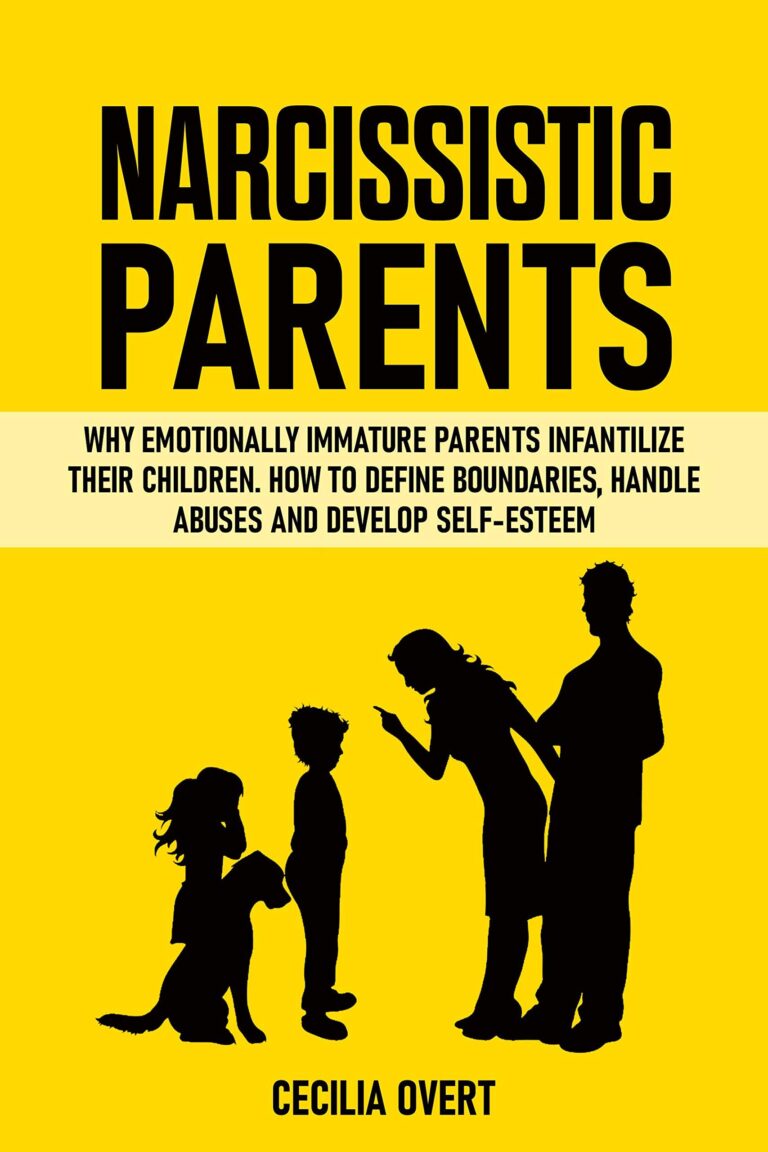Parenting is often painted as an unconditionally loving and nurturing role, but what happens when admiration turns into a source of pain? For many, growing up with a narcissistic parent can feel like walking on a tightrope—constantly seeking approval yet never quite measuring up. In this article, we’ll explore the complex and often painful dynamics of narcissistic parenting, helping you understand how admiration can sometimes hurt and offering gentle guidance for those navigating these challenging relationships. Whether you’re looking for insight, validation, or a path forward, this space is here to hold your experience with care.
Table of Contents
- The Hidden Impact of Narcissistic Parenting on Emotional Wellbeing
- Recognizing the Signs of Manipulation and Conditional Love
- Navigating Boundaries with Compassion and Firmness
- Healing and Reclaiming Your Sense of Self Beyond Parental Influence
- Final Thoughts
The Hidden Impact of Narcissistic Parenting on Emotional Wellbeing
Living under the shadow of a narcissistic parent often leaves emotional scars that quietly shape one’s inner world. These parents, driven by an insatiable need for admiration, frequently place their own self-image above their child’s genuine emotional needs. This dynamic can cause feelings of invisibility and confusion, as children learn to prioritize their parent’s feelings over their own. The constant pressure to conform to an idealized version of themselves can undermine their self-esteem and foster chronic self-doubt.
Over time, the effects ripple into adulthood, often manifesting as:
- Difficulty forming authentic relationships due to a deep-seated fear of rejection or abandonment.
- Emotional suppression, where expressing vulnerability feels unsafe or unacceptable.
- Perfectionism or people-pleasing tendencies born from a desire to gain approval and avoid criticism.
- Internalized guilt and shame that act as invisible chains, limiting personal growth and wellbeing.
Recognizing these hidden wounds is the first step towards healing—because true emotional freedom begins when we reclaim our worth beyond the flawed reflections of narcissistic admiration.
Recognizing the Signs of Manipulation and Conditional Love
Living under the influence of a narcissistic parent means constantly walking on eggshells, unsure of when their affection might abruptly turn conditional. You may find yourself caught in a painful dance where love feels like a transaction—offered only when you meet their expectations or mirror their desires perfectly. This manipulation often hides behind charming smiles and seemingly supportive words, but beneath lies a pattern designed to control. The signs can be subtle, such as excessive guilt-tripping, emotional withdrawal when you disagree, or relentless criticism disguised as “tough love.” Recognizing these patterns is the first step toward breaking free from emotional entanglement and reclaiming your sense of self-worth.
Common red flags often overlooked include:
- Conditional praise that disappears if you don’t perform or behave as expected.
- Frequent invalidation of your feelings, making you doubt your own experiences.
- Gaslighting tactics, where you are made to question your reality or intentions.
- Use of emotional blackmail, such as withdrawing love to punish or influence choices.
- Constant comparisons to others framed as a way to “motivate” or “inspire.”
In recognizing these signs, it’s vital to remember that your feelings are valid and that genuine love never demands compromise of your emotional health. You deserve relationships where admiration uplifts, not cuts deep.
Navigating Boundaries with Compassion and Firmness
Establishing clear limits with a narcissistic parent often feels like walking a tightrope—balancing kindness with the necessary distance to protect your emotional wellbeing. It’s important to remember that setting boundaries isn’t about pushing them away but about creating a space where your needs are respected. Approaching these conversations with empathy helps preserve the relationship, even when your parent struggles to see beyond their own desires. Compassion allows you to acknowledge their vulnerabilities without sacrificing your own sense of self, creating a foundation for healthier interactions.
Practical strategies can make this delicate process more manageable. Consider:
- Using “I” statements to express how certain behaviors affect you personally.
- Consistently reinforcing your limits in a calm but firm tone.
- Seeking support from trusted friends, support groups, or professional counseling.
- Prioritizing self-care to replenish your emotional reserves after challenging exchanges.
This combination of gentle steadfastness and self-compassion cultivates resilience, enabling you to navigate difficult dynamics without losing sight of your own growth and happiness.
Healing and Reclaiming Your Sense of Self Beyond Parental Influence
Recovering from the shadows of a narcissistic parent requires intentional steps to rediscover your identity independent of their influence. It’s essential to recognize that your sense of self has been shaped, often distorted, by their need for control and admiration. Healing begins with setting boundaries—mentally and emotionally—that safeguard your well-being. Embrace practices that nurture self-awareness, such as journaling your thoughts and feelings without judgment, or seeking therapy that focuses on reclaiming personal narratives. These tools help dismantle internalized criticisms and validate your authentic experiences.
Rebuilding your confidence and autonomy is a gradual journey, and it thrives in the company of supportive, understanding relationships. Surround yourself with people who see and appreciate you for who you truly are, not through the lens of parental expectations. Consider incorporating:
- Mindfulness exercises to center yourself in the present moment
- Creative outlets that encourage self-expression without filters
- Communities or support groups that foster empathy and shared healing
By consistently choosing actions that affirm your worth beyond parental influence, you reclaim control over your life story and open the door to genuine self-love and resilience.
Final Thoughts
Navigating the complex emotions that come with having a narcissistic parent is never easy. Understanding the ways admiration can sometimes turn into a source of pain is the first step toward healing and reclaiming your sense of self. Remember, your worth isn’t defined by their approval or validation. Surround yourself with supportive people, seek help when needed, and give yourself permission to prioritize your own emotional well-being. Healing is a journey, and with awareness and compassion, it’s possible to break free from the shadows of narcissistic admiration and build a brighter, healthier future.

